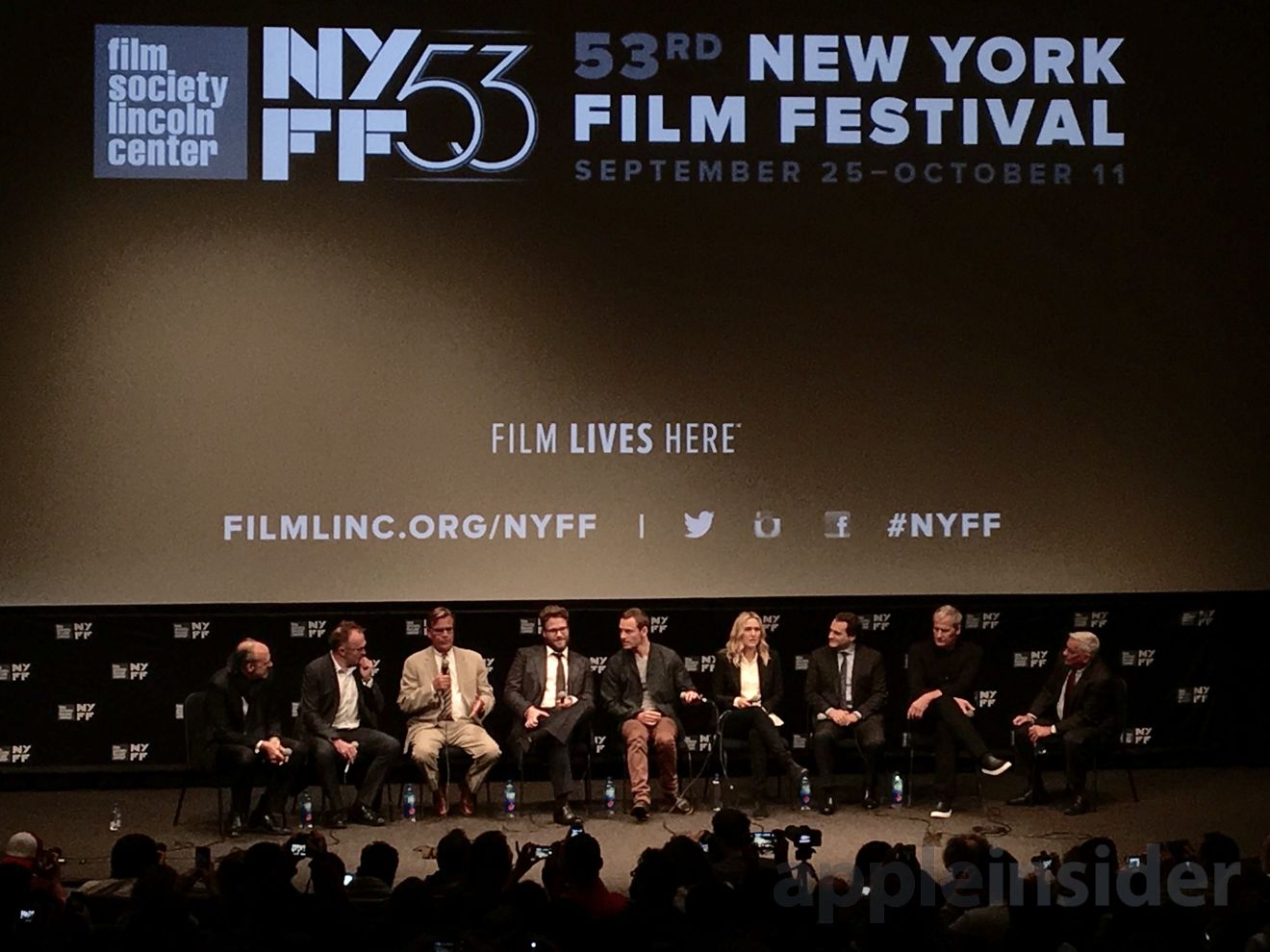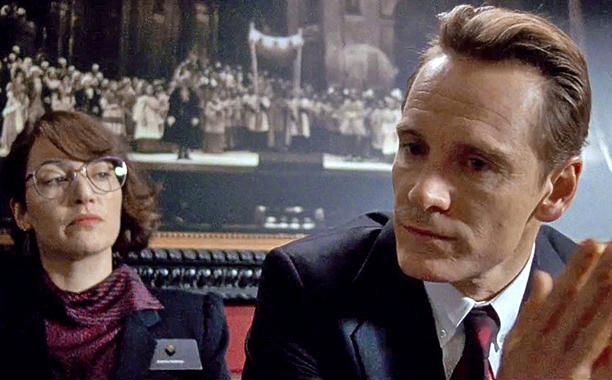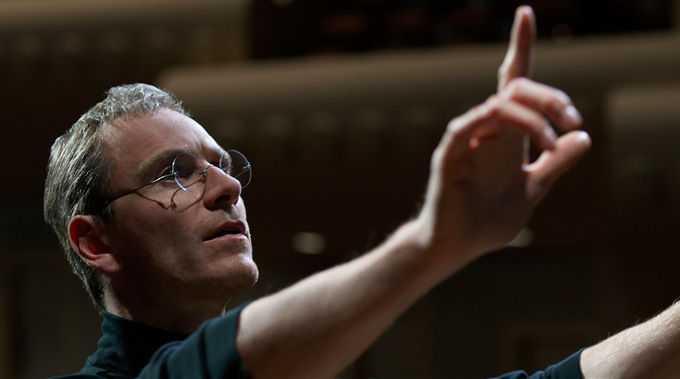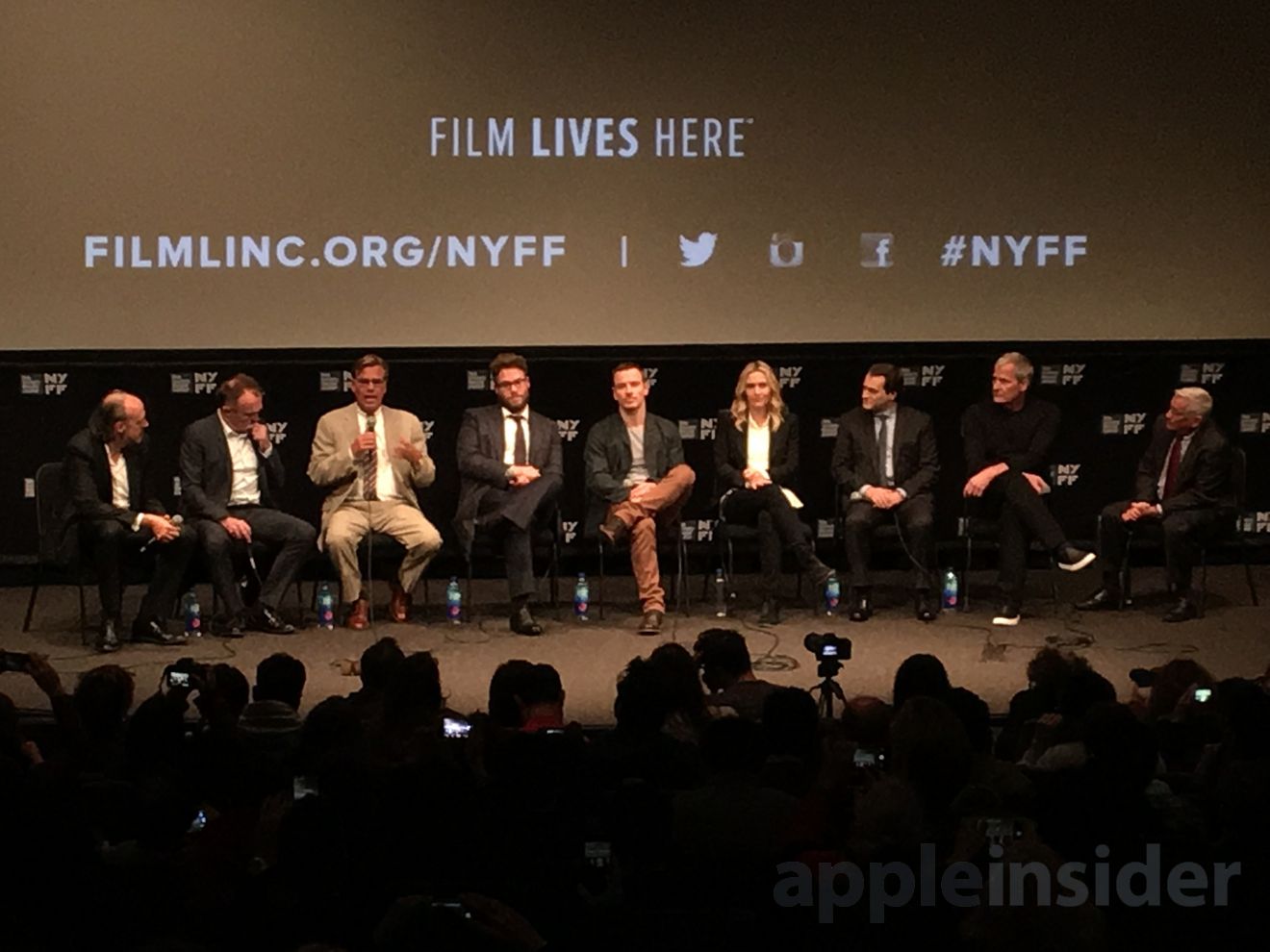Review: 'Steve Jobs' an electric depiction of Apple's enigmatic founder
A humanizing, honest and emotional portrayal of the complex man who cofounded Apple, "Steve Jobs" is a deeply satisfying film grounded by sharp dialogue and a stellar cast. AppleInsider had a chance to view the film in New York on Saturday, and also to participate participate in a Q&A with the talent behind the production.
The Aaron Sorkin-scripted "Steve Jobs" was selected as the prestigious Centerpiece of the 53rd annual New York Film Festival. It played to a packed house at Manhattan's Walter Reade Theater, where members of the press lined up well in advance for a chance to see the movie before this Friday's opening.
Michael Fassbender, in the lead role as Jobs, carries the bulk of the film, portraying the late Apple CEO as a self-described "broken" man. With Fassbender essentially constantly in the frame throughout the film, in a series of one-on-one complex conversations with the rest of the cast, the fast paced script leans on Fassbender's energetic, outstanding performance to bring it to life.
But the film also depends heavily on Kate Winslet as Joanna Hoffman, a member of the original Macintosh team and the NeXT team. Winslet's Hoffman is a connective tissue in the narrative of the film, as she whisks Jobs from one conversation to another, and routinely stands up to the frequently stubborn and abrasive Apple chief.
Thankfully, the movie doesn't just focus on Jobs's lesser qualities, as it also portrays a kindhearted if difficult-to-reach man through moments of genuine sweetness. His complicated relationships with Steve Wozniak (played by Seth Rogen) and Andy Hertzfeld (portrayed by Michael Stuhlbarg) serve to showcase the love-and-loathe feelings about Jobs that many of those closest to him have shared over the years.
But the contradictory nature of Jobs is best defined by the dynamic between him and his daughter Lisa Brennan-Jobs. Set over a span of 14 years before three major product launches, the film shows Jobs at three very different points in his life, and his exchanges with Lisa as both of them grow and change are the emotional center of the film.
There's an energy to the entire production captured not only by the script and cast, but also through director Danny Boyle's lively sense of fun and experimentation behind the camera. This all comes together thanks to tight editing that keeps the film clipping along.
Not content to be a typical cradle-to-grave biopic, "Steve Jobs" mixes in flashbacks, some unique visuals, and a real-time structure that gives a sense of urgency. Fassbender's Jobs struts from one scene to the next, bouncing off the likes of Jeff Daniels as former Apple CEO John Sculley in fast paced discussions that continue to peel back the layers surrounding the mythical nature of Jobs.
The film makes no major efforts to be historically accurate, but that's not really the point.
In the Q&A following the movie, Rogen said the crew felt historical accuracy is not necessarily the best way to accurately portray a person in a dramatic film. Still, he and the rest of the cast did spent time with their real-life counterparts in an effort to better understand the humans they were portraying, and how they saw Jobs.
"We pursued the man and his relationships with other people," Boyle explained. In that respect, the film succeeds.
Some of the moments do feel forced — Â including quick lines foreshadowing the creation of the iPod and iPhone — but easy to see why Sorkin included them, reflecting the forward thinking vision that Jobs had.
The script is also hilarious, with a number of witty laugh-out-loud moments. One standout moment is a meta commentary from Sorkin on the fictionalized, unrealistic structure of the film, where Jobs wonders aloud why everyone decides to inconvenience him just moments before new product unveilings.
Some of Sorkin's other work, such as HBO's "The Newsroom," felt at times like it was too smug for its own good, sometimes even seemingly condescendingly looking down on its own audience and subject matter. Thankfully, "Steve Jobs" never goes down that path. This is a film that respects the characters it portrays, and everyone comes across with clear, usually relatable and understandable intentions.
Following the screening, Sorkin said he's hopeful that people who see the film will not walk away with concrete answers about the nature of Jobs and his genius. The scriptwriter said he envisions that filmgoers will be arguing in the parking lot about who was right and whether someone like Jobs could have achieved what he did if he was a "nicer" person.
And so, thankfully, "Steve Jobs" makes no real attempts to fully resolve that conundrum. Because it shouldn't.
Because in "Steve Jobs," the iconic man behind the Mac, despite all of his genius, was still just a man.
 Neil Hughes
Neil Hughes














 Mike Wuerthele
Mike Wuerthele

 Malcolm Owen
Malcolm Owen
 Chip Loder
Chip Loder

 William Gallagher
William Gallagher
 Christine McKee
Christine McKee
 Michael Stroup
Michael Stroup






